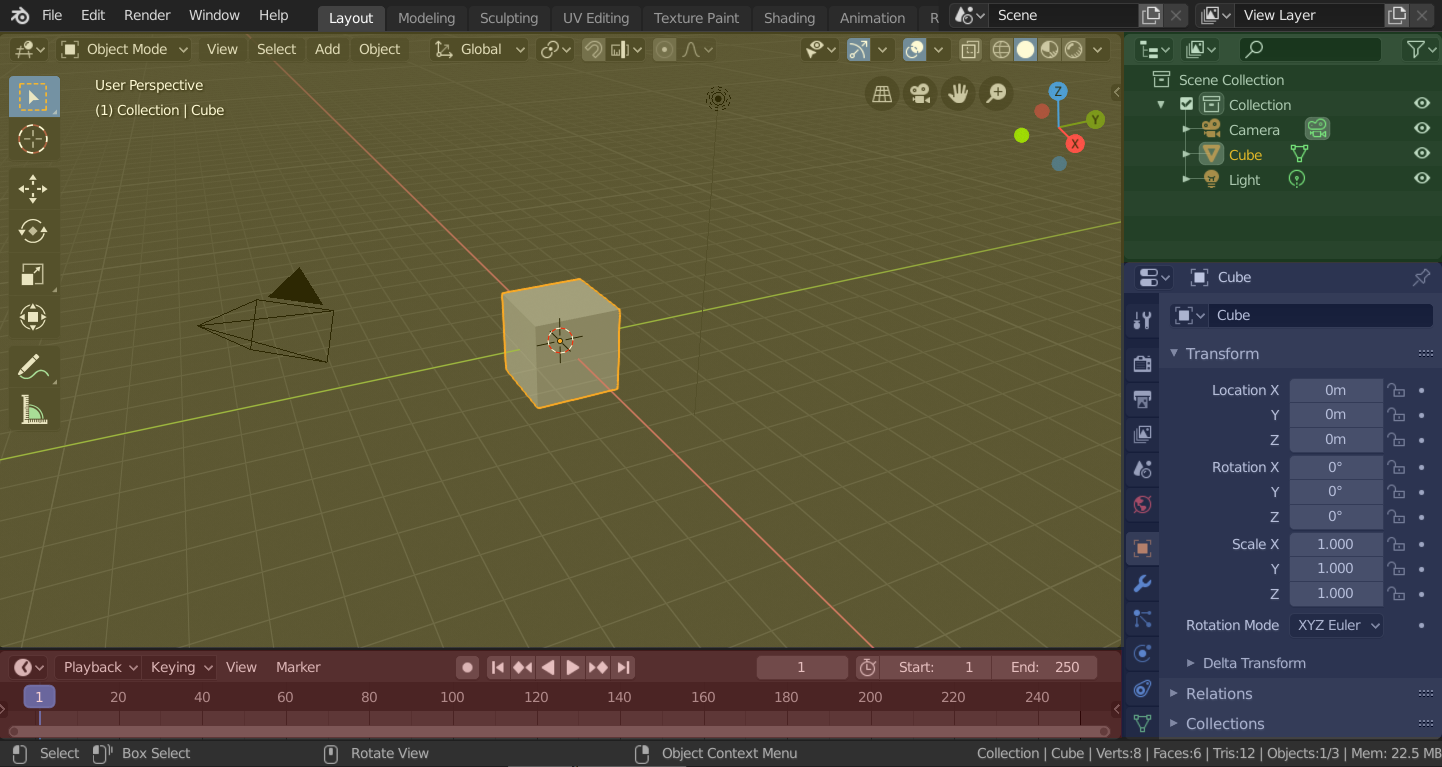Workspaces#
Workspaces are essentially predefined window layouts. Each Workspace consists of a set of Areas containing Editors, and is geared towards a specific task such as modeling, animating, or scripting. You’ll typically switch between multiple Workspaces while working on a project.

Workspaces are located at the Topbar.#
Controls#
- Tabs
Click on the tabs to switch between the workspaces. You can also use the keyboard shortcuts Ctrl-PageUp and Ctrl-PageDown. Double-click a tab to rename the workspace.
- Add
+ Click on the Add button to add a new workspace.
- Context menu RMB
The context menu contains options to duplicate, delete and reorder workspaces.
Default Workspaces#
Blender’s default startup shows the “Layout” workspace in the main area. This workspace is a general workspace to preview your scene and contains the following Editors:
3D Viewport on top left.
Outliner on top right.
Properties on bottom right.
Timeline on bottom left.

Blender’s ‘Layout’ Workspace with four editors.#
3D Viewport (yellow), Outliner (green), Properties (blue) and Timeline (red).
Blender also has several other workspaces added by default:
- Modeling:
For modification of geometry by modeling tools.
- Sculpting:
For modification of meshes by sculpting tools.
- UV Editing:
For mapping of image texture coordinates to 3D surfaces.
- Texture Paint:
For coloring image textures in the 3D Viewport.
- Shading:
For specifying material properties for rendering.
- Animation:
For making properties of objects dependent on time.
- Rendering:
For viewing and analyzing rendering results.
- Compositing:
For combining and post-processing of images and rendering information.
- Geometry Nodes:
For procedural modeling using Geometry Nodes.
- Scripting:
For interacting with Blender’s Python API and writing scripts.
Additional Workspaces#
Blender has a couple additional Workspaces to choose from when adding a new Workspace:
2D Animation
- 2D Animation:
General workspace to work with Grease Pencil.
- 2D Full Canvas:
Similar to “2D Animation” but contains a larger canvas.
VFX
- Masking:
For creating 2D masks for compositing or video editing.
- Motion Tracking:
For calculating camera motion and stabilizing video footage.
Video Editing
- Video Editing:
For sequencing together media into one video.
Save and Override#
The workspaces are saved in the blend-file. When you open a file, enabling Load UI in the File Browser indicates that Blender should use the file’s screen layout rather than the current one.
A custom set of workspaces can be saved as a part of the Defaults.
Workspace Settings#
Reference
- Editor:
Properties
- Menu:
- Mode
Switch to this Mode when activating the workspace.
Filter Add-ons#
Determines which Add-ons are enabled in the active workspace. When unchecked, the global add-ons will be used. When checked, you can enable individual add-ons in the list below.